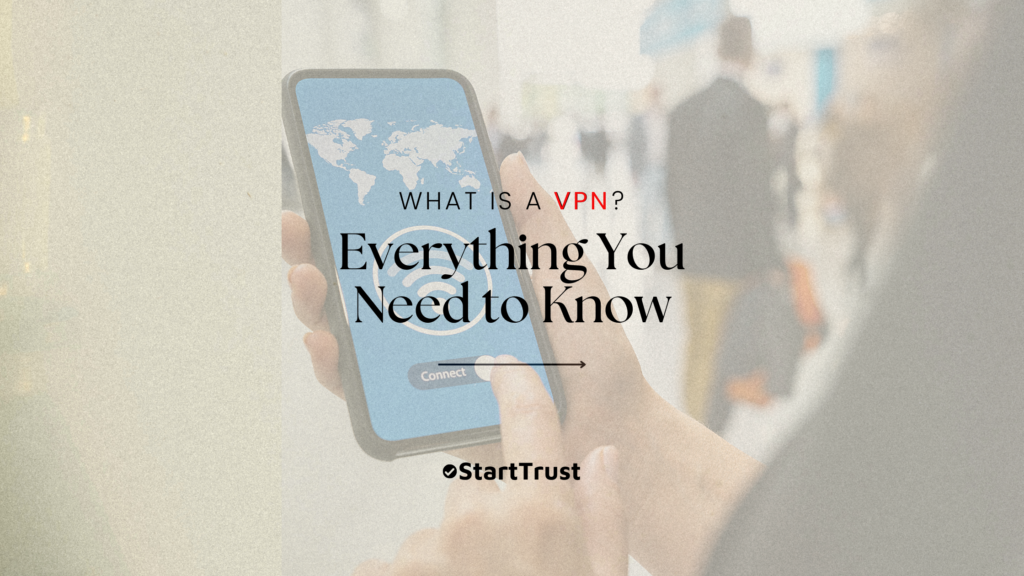
What is a VPN? Everything You Need to Know
In today’s digital age, online privacy and security have become increasingly important. One of the most effective tools available to protect your online activities is a Virtual Private Network, commonly known as a VPN. But what exactly is a VPN, and why should you consider using one? In this blog, we’ll cover everything you need to know about VPNs, from how they work to the benefits they offer.
What is a VPN?
A VPN is a service that creates a secure, encrypted connection between your device and the internet. When you use a VPN, your internet traffic is routed through an encrypted tunnel to a server operated by the VPN provider. This means that your data is hidden from prying eyes, including hackers, government agencies, and even your Internet Service Provider (ISP).
How Does a VPN Work?
When you connect to a VPN, it masks your IP address, replacing it with the IP address of the VPN server you’re connected to. This makes it appear as though your internet activity is coming from a different location, which can be useful for bypassing geo-restrictions or accessing content that may be blocked in your country.
Here’s a step-by-step breakdown of how a VPN works:
- Connection to the VPN Server: You start by connecting to a VPN server. This server can be located anywhere in the world, depending on the locations offered by your VPN provider.
- Encryption of Data: Once connected, your data is encrypted before it leaves your device. Encryption converts your data into a code that is unreadable to anyone who might try to intercept it.
- Routing Through the VPN Server: Your encrypted data is then sent to the VPN server. The server acts as an intermediary between your device and the internet, routing your data to its destination.
- Accessing the Internet: When your data reaches its destination, such as a website, it appears to be coming from the VPN server’s IP address rather than your own. This adds an extra layer of anonymity to your online activities.
Why Should You Use a VPN?
There are several reasons why you might consider using a VPN:
- Enhanced Privacy: By masking your IP address and encrypting your data, a VPN helps protect your online privacy. This is especially important when using public Wi-Fi networks, which are often unsecured and vulnerable to cyberattacks.
- Improved Security: A VPN helps safeguard your sensitive information, such as passwords, credit card numbers, and personal data, from hackers and other malicious entities. This is particularly useful when conducting online transactions or accessing confidential information.
- Bypass Geo-Restrictions: Many streaming services, websites, and online platforms restrict content based on your geographic location. A VPN allows you to bypass these restrictions by connecting to a server in a different country, giving you access to content that might otherwise be unavailable.
- Avoid Censorship: In some countries, the internet is heavily censored, and certain websites or services may be blocked. A VPN can help you bypass these restrictions and access the internet freely.
- Prevent Bandwidth Throttling: Some ISPs throttle your internet speed if they detect that you’re streaming, gaming, or downloading large files. A VPN hides your online activities from your ISP, preventing them from slowing down your connection.
Are There Any Drawbacks to Using a VPN?
While VPNs offer numerous benefits, they’re not without their downsides. Some potential drawbacks include:
- Reduced Internet Speed: Because your data has to travel through an encrypted tunnel and then through a VPN server, your internet speed may be slightly reduced. However, the extent of the slowdown depends on the VPN provider and the distance to the server.
- VPN Costs: While there are free VPN services available, they often come with limitations, such as slower speeds, data caps, or fewer server options. Premium VPN services typically offer better performance and more features, but they come at a cost.
- Compatibility Issues: Some websites and online services actively block VPN traffic, which can prevent you from accessing certain content or platforms while connected to a VPN.
How to Choose the Right VPN
When selecting a VPN, consider the following factors:
- Security Features: Look for a VPN with strong encryption, a no-logs policy, and additional security features like a kill switch, which disconnects you from the internet if the VPN connection drops.
- Server Locations: Choose a VPN with a wide range of server locations, so you can easily access content from different regions.
- Speed: Opt for a VPN that offers fast and stable connections, especially if you plan to use it for streaming or gaming.
- Ease of Use: Consider how user-friendly the VPN is, especially if you’re new to using this type of software. Some VPNs offer simple interfaces and one-click connections, making them easy to use.
- Customer Support: Check if the VPN provider offers reliable customer support in case you encounter any issues.
Conclusion
A VPN is an essential tool for anyone looking to enhance their online privacy and security. Whether you want to protect your personal data, bypass geo-restrictions, or simply browse the internet anonymously, a VPN can offer the protection and freedom you need. By understanding how VPNs work and what they can do for you, you can make an informed decision about whether a VPN is right for you and which one to choose.